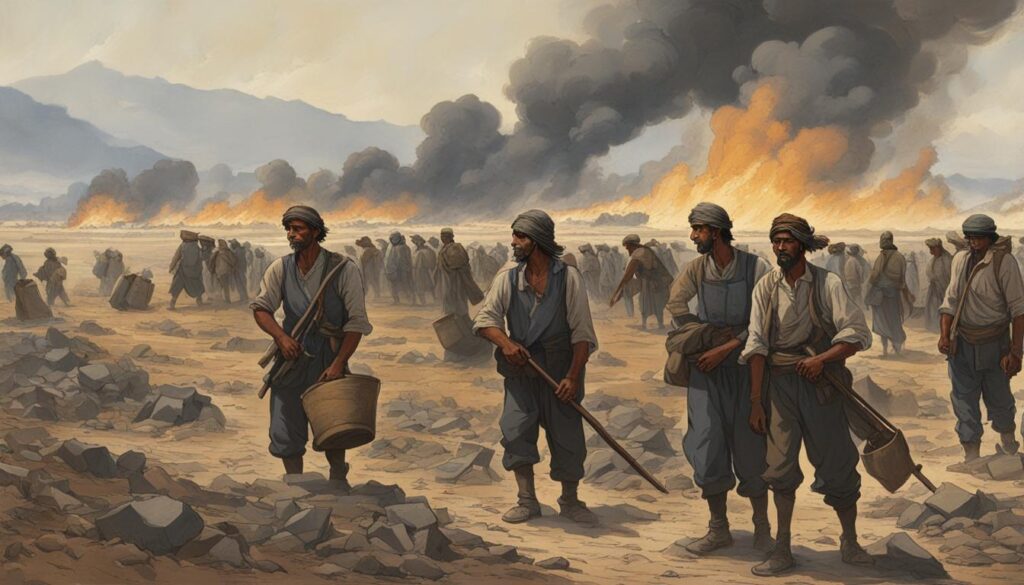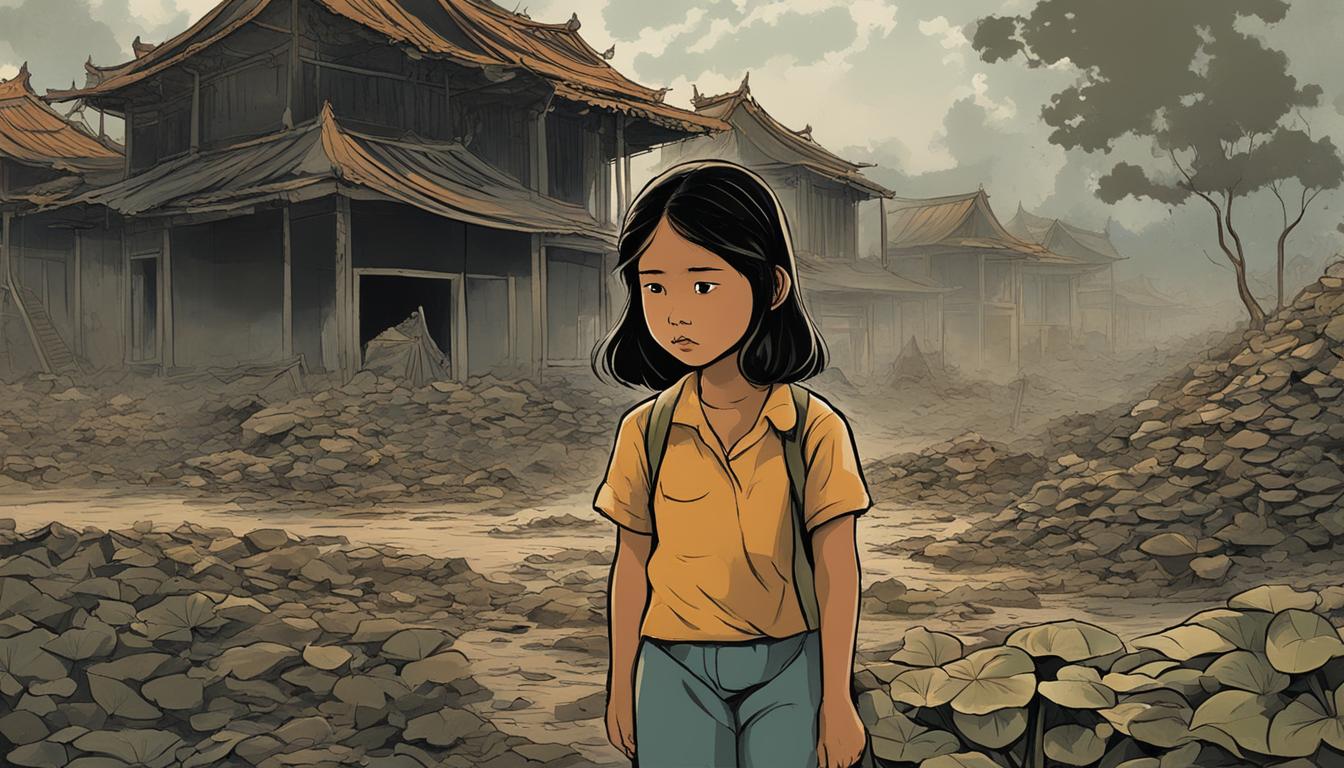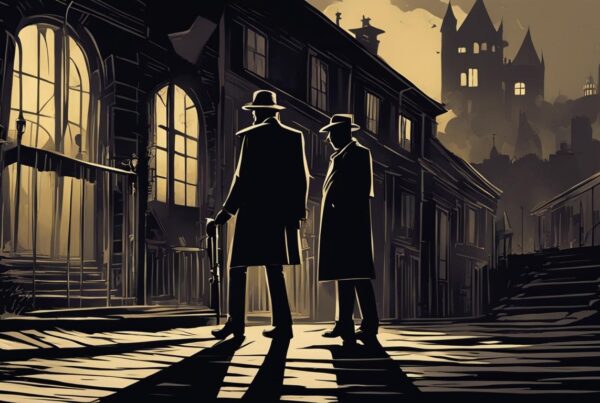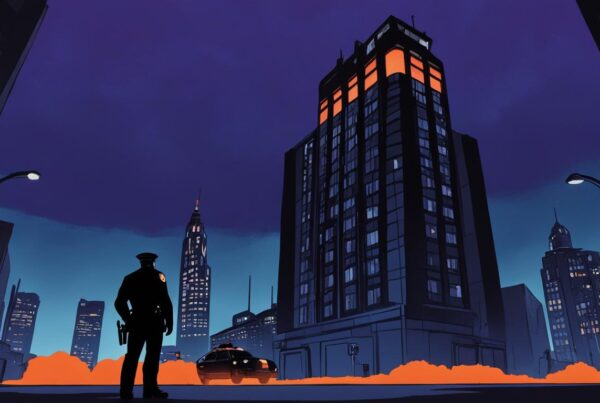Embark on a journey through war-torn Cambodia with Loung Ung as she recounts her harrowing experiences as a young girl in her memoir ‘First They Killed My Father.’ This incredible book details Loung’s struggle to survive during the violent Khmer Rouge regime that left a significant impact on Cambodia. The memoir is a heart-wrenching tale of resilience, courage and relentless fight for survival in the face of tragedy.
Join us as we explore this gripping memoir by Loung Ung and gain a deeper understanding of the unfolding events that occurred in war-torn Cambodia. Get ready to be intrigued, informed, and inspired by the incredible journey undertaken by one young girl and the strength of the human spirit in her fight for survival.
Introduction to ‘First They Killed My Father’
First They Killed My Father is an autobiographical memoir by Loung Ung, chronicling her experiences as a young girl growing up in war-torn Cambodia. The memoir recounts her family’s struggles to survive under the brutal Khmer Rouge regime, which took over Cambodia in 1975 and plunged the country into chaos and suffering.
Loung Ung’s vivid, heart-wrenching narrative grips readers from beginning to end, providing a powerful firsthand account of the atrocities committed under the Khmer Rouge. Through her eyes, readers gain an intimate understanding of the pain and suffering endured by the Cambodian people during this tumultuous period.
Image alt text: Loung Ung’s ‘First They Killed My Father’ memoir book cover.
Loung Ung’s Childhood in Cambodia
Before the war-torn era in Cambodia, Loung Ung had a peaceful childhood. Her family lived in Phnom Penh, Cambodia’s capital city. Her father, a government official, instilled in her a love for books and education. Her mother worked as a homemaker and took care of the children.
Amidst the idyllic setting of an ordinary Cambodian family, Loung Ung dreamed of a bright future. She had hopes of becoming a doctor. However, all of that was shattered when the Khmer Rouge regime took control of the country, forcing her family to flee their home and embark on a journey of survival.
“We were an ordinary middle-class family living in Cambodia in the ’60s and ’70s; it wasn’t until the Khmer Rouge took control in 1975 that our lives became a nightmare.” – Loung Ung
The Impact of the Khmer Rouge
The Khmer Rouge regime, led by Pol Pot, rose to power in Cambodia in 1975 and subjected the nation to one of the most brutal genocides in modern history. Under their control, an estimated 1.7 million people, including many intellectuals, were executed or died as a result of forced labor, malnutrition, and disease.
Loung Ung’s family was among the millions who fell victim to the atrocities of the Khmer Rouge’s rule. They were forcibly evacuated from their home and sent to work in rural labor camps. Loung’s father, mother, and two sisters did not survive the Khmer Rouge’s cruelty, leaving her as the only surviving member of her immediate family.
Although the Khmer Rouge was eventually toppled from power in 1979, Cambodia continued to suffer the aftermath of their brutal regime for many years. The country was left with a destroyed economy, a traumatized populace, and deep scars from the psychological trauma of the Khmer Rouge’s reign.
“It was not hatred that drove Pol Pot to his horrendous crimes, it was utopianism. He genuinely believed that Cambodia could become an agrarian utopia, and anyone who didn’t fit with that vision was eliminated.”
As Loung Ung recounted in her memoir, the impact of the Khmer Rouge was felt acutely by all Cambodians, including those who survived. The legacy of the genocide continues to resonate in Cambodia today, with unexploded landmines, damaged infrastructure, and psychological trauma still affecting many of the country’s citizens.
Life Under the Khmer Rouge
Life under the Khmer Rouge was a nightmare for many Cambodians, including Loung Ung and her family. The Khmer Rouge were notorious for their brutal tactics and twisted ideology, which led to the deaths of over 1.7 million people in Cambodia. The regime enforced a strict social hierarchy, with intellectuals, city dwellers, and anyone deemed a threat to the regime targeted for arrest, imprisonment, and execution.
The Khmer Rouge also implemented forced labor programs that required every able-bodied person, including children, to work 12-14 hours daily on farms or in construction projects. Many people suffered from starvation, disease, and exhaustion, leading to countless deaths. Loung’s family experienced this harsh reality firsthand, with her father dying from starvation and her sister succumbing to illness.
“We were living in a world turned upside down where it was survival of the fittest, and the Khmer Rouge were the fittest of all.” – Loung Ung
To illustrate the conditions under the Khmer Rouge, here is a table summarizing some aspects of life under the regime:

| Aspect | Description |
|---|---|
| Forced Labor | 12-14 hours of work daily, often under harsh conditions and with inadequate supplies. |
| Starvation | The Khmer Rouge confiscated food supplies and implemented inadequate rationing, resulting in widespread malnutrition and starvation. |
| Loss of Basic Freedoms | People were not allowed to express their opinions, religious beliefs, or basic human rights and were punished severely if caught doing so. |
| Violence and Execution | The Khmer Rouge were ruthless in maintaining their power, and violence, imprisonment, and execution were commonplace. |
Life under the Khmer Rouge was one of the darkest periods in Cambodian history, and Loung Ung’s memoir sheds light on the horrors endured by her and many others. Despite the struggles, Loung and her family displayed remarkable resilience and strength, inspiring hope in the face of adversity.
Loss and Survival
Loung Ung’s memoir ‘First They Killed My Father’ portrays the heartbreaking loss and resilience of her family as they endure the atrocities of the Khmer Rouge regime in Cambodia. Loung and her siblings were separated from their parents and forced into labor camps, where they witnessed and experienced unimaginable horrors.
Despite the constant threat of starvation, illness, and death, Loung refused to give up. She and her siblings learned to adapt and band together, supporting each other through their struggles. In one particular instance, Loung stole and ate raw sloth meat to survive, demonstrating her sheer determination to live.
The loss of their loved ones left a lasting impact on Loung and her family, but their resilience and will to survive is truly inspiring. Their story serves as a testament to the strength of the human spirit in the face of unimaginable adversity.
Liberation and Rebuilding
After the fall of the Khmer Rouge, Cambodia began the long process of rebuilding. Loung Ung and her surviving family members faced a daunting future, but they were determined to start anew. Their liberation marked an end to the brutal regime which had caused such catastrophic loss, while offering a glimmer of hope for the future.
Soon after her liberation, Loung Ung joined her brother in the United States. Despite facing many challenges in their new home, they held onto their resilience and remained determined to move forward. Loung Ung persevered, earning degrees from the University of California at Berkeley and eventually becoming an author and human rights activist.
Although Cambodia is still grappling with the aftermath of the Khmer Rouge regime, Loung Ung’s story serves as a testament to the strength and resilience of the human spirit even in the face of unimaginable horrors. Her memoir has played a vital role in educating others about the brutal history of Cambodia, inspiring current and future generations to stand up against injustice and oppression.
Legacy and Reflections
Decades after its publication, ‘First They Killed My Father’ continues to leave a profound impact on readers worldwide. At its core, Loung Ung’s memoir is a testament to the resilience of the human spirit, an unflinching reflection of the atrocities of war, and a stark reminder of the dangers of unchecked power.
The legacy of ‘First They Killed My Father’ resides not only in Ung’s harrowing tale but in the broader attention it brings to the lasting effects of violence and oppression on individuals and communities. The memoir’s unflinching portrayal of Cambodia’s recent history serves to educate and inspire, highlighting the strength and determination of those who endure unimaginable hardships.
For many readers, ‘First They Killed My Father’ serves as a call to action, prompting reflection on the impact of war and the effects of violent regimes. As we consider the legacy of Loung Ung’s memoir, we are reminded of the need to listen to and learn from survivors of conflict and violence, to strive for empathy and understanding, and to hold those in power accountable to their actions.
Critical Reception and Awards
The memoir ‘First They Killed My Father’ by Loung Ung has received critical acclaim for its powerful storytelling and emotional impact. It was a New York Times bestseller, and has been widely praised by readers and critics alike.
“An unforgettable book…a work of deep dignity and bravery.” – The New York Times
The book has also received numerous awards and recognitions, including the National Book Award, the ALA Alex Award, and the Asian/Pacific American Award for Literature.
| Award | Year |
|---|---|
| National Book Award | 2000 |
| ALA Alex Award | 2001 |
| Asian/Pacific American Award for Literature | 2001 |
The recognition and success of ‘First They Killed My Father’ is a testament to the powerful impact of Loung Ung’s story and the importance of shedding light on the traumatic history of Cambodia and the resilience of its people.
Conclusion
In conclusion, ‘First They Killed My Father’ by Loung Ung is a powerful memoir that provides a glimpse into the traumatic history of war-torn Cambodia. Through the eyes of a young girl, readers witness the devastating impact of the Khmer Rouge regime, experiencing the loss, forced labor, starvation, and loss of basic freedoms that Loung Ung and her family endured. The memoir is a testament to the resilience and determination of the human spirit in the face of unimaginable adversity, showcasing the strength of the human spirit to overcome even the most challenging circumstances.
Through her memoir, Loung Ung sheds light on the impact of war on families and communities, emphasizing the importance of resilience and hope in the face of adversity. Her story is a reminder of the resilience of the human spirit in the face of unimaginable circumstances and the power of storytelling in preserving memories and history.
‘First They Killed My Father’ is a must-read for anyone interested in the history of Cambodia, the impact of war on communities, and the power of resilience in the face of adversity. Loung Ung’s powerful words leave a lasting impact, compelling readers to reflect on the enduring legacy of war and the importance of hope, resilience, and healing in times of crisis.



